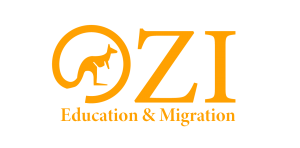Study in Canada
remembering the past
Since 2021
Are you looking to study abroad or migrate to Canada? We are here to assist you every step of the way. Canada is a wonderful country with a rich cultural heritage and a diverse population. Here are some reasons why you should consider studying or living in Canada:
High-Quality Education:
Canada is known for its world-class education system, with some of the best universities in the world. Canadian universities are renowned for their academic excellence, research facilities, and innovative teaching methodologies. Canada is also home to a large number of community colleges, technical institutes, and vocational schools that offer practical, hands-on training in various fields.
Safe and Secure Environment:
Canada is considered one of the safest countries in the world, with low crime rates and a peaceful society. Canadians are known for their friendly and welcoming nature, and immigrants from all over the world feel at home in Canada.
Multicultural Society:
Canada is a diverse country with a welcoming attitude towards immigrants from all over the world. The country has a multicultural policy that celebrates diversity and promotes inclusion. Canada is home to people from various ethnic, linguistic, and religious backgrounds, making it a truly cosmopolitan society.
Employment Opportunities:
Canada offers excellent job opportunities, with a high demand for skilled workers in various fields. The country has a strong economy and a low unemployment rate, making it an attractive destination for job seekers. Canada is particularly welcoming to immigrants with skills and experience that are in demand in the Canadian labor market.
Natural Beauty:
Canada is renowned for its stunning natural beauty, with vast forests, pristine lakes, and majestic mountains. The country has a rich wildlife and is home to various national parks and wilderness areas. Canada also has four distinct seasons, with each season offering its unique charm and beauty.
Let us do the hard work
VISA Subclasses
Study permits are for international students who wish to pursue academic, professional or vocational training in Canada. To be eligible for a study permit, students must have a letter of acceptance from a Canadian Designated Learning Institution (DLI), demonstrate that they have sufficient funds to cover their tuition fees and living expenses in Canada, and provide evidence of their intent to leave Canada at the end of their studies.
Work permits are for individuals who wish to work in Canada temporarily. There are several types of work permits, including open work permits, employer-specific work permits, and working holiday visas. The eligibility criteria vary depending on the type of work permit, but generally, applicants must have a job offer from a Canadian employer, possess the necessary skills and qualifications, and demonstrate that they will leave Canada at the end of their authorized stay.
Refugee and asylum claims are for individuals who are fleeing persecution, war, or other forms of violence in their home countries. To be eligible for refugee status in Canada, applicants must demonstrate that they have a well-founded fear of persecution based on their race, religion, nationality, political opinion, or membership in a particular social group.

Types of Educational Courses

Bachelor’s degree programs are four-year undergraduate programs that lead to a Bachelor’s degree in various fields such as arts, science, engineering, business, and healthcare. Canadian universities are renowned for their academic excellence and research facilities, making them an excellent choice for students seeking a high-quality education.
Master’s degree programs are graduate-level programs that usually require one to two years of study and lead to a Master’s degree in various fields such as business, engineering, healthcare, and science. Master’s degree programs often involve research or a thesis component, providing students with an opportunity to conduct independent research and develop their critical thinking skills.
PhD programs are doctoral-level programs that usually require three to four years of study and lead to a PhD degree. PhD programs are research-intensive and require students to conduct original research in their field of study. Canadian universities are renowned for their research facilities and provide students with excellent opportunities to develop their research skills.
Vocational programs provide students with practical, hands-on training in various fields such as trades, technology, healthcare, and business. Vocational programs are often offered by community colleges and technical institutes and lead to certificates, diplomas, or applied degrees. These programs prepare students for specific careers and provide them with the necessary skills and knowledge to succeed in their chosen field.
We Will Help You Every Step Of The Way
Don’t let the unknown stop you from success. Let’s have a chat & see what your options are.

